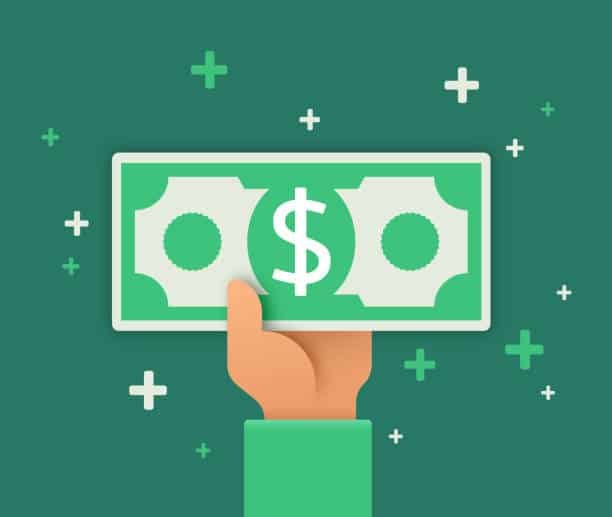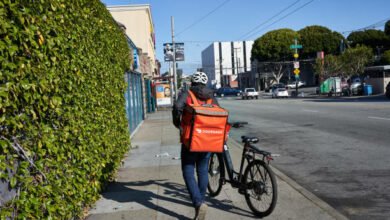Debt Payoff Grants 2024 – Unlock Financial Freedom.

Discover the power of debt payoff grants in our comprehensive guide. Find out opportunities to alleviate financial burdens and pave the way to a debt-free life. Uncover the secrets to securing grants for debt relief and take control of your financial destiny today.
Where do you find Student Loan Grants?
National Health Service Corps
The NHSC offers scholarships and loan repayment programs to eligible healthcare professionals, including doctors, dentists, nurse practitioners, and mental health providers. If you serve a minimum of three years full-time in an underserved community at an NHSC-approved site, you may qualify for a grant of up to $120,000. Visit their website for details on additional criteria and smaller grant amounts.
Health Resources and Services Administration (HRSA) Nurse Corps Repayment Program
For registered nurses (RNs), advanced practice registered nurses (APRNs), and nurse faculty members (NF), this initiative covers up to 85% of your outstanding nursing education debt. If you opt for this grant, a commitment of at least two years of service in a critical shortage facility or an eligible nursing school as a faculty member is required. Explore more details on their website.
John R. Justice Student Grant Program
The initiative extends an annual benefit of $10,000, reaching a maximum total of $60,000, for state public defenders or prosecutors. Full-time staff members of nonprofits working under a contract with a state or local government to offer legal representation to indigent individuals are also eligible.
Department of Justice Attorney Student Loan Repayment Program
Designed for incoming honors program attorneys, this initiative grants $6,000 annually, with a maximum total benefit of $60,000. To qualify, attorneys must possess a minimum student loan balance of $10,000.

Debt Payoff Grant programs
1. College Repayment Grant
The College Repayment Grant welcomes applications from college graduates or parents who borrowed student loans for their children. With a rolling application deadline at the end of each month, successful applicants receive a $2,000 reduction on their student loan balance.
2. Forget your Student Debt Grant
The Forget Your Student Debt Grant program is open to individuals burdened with student loan debt, whether federal or private. Qualifying participants can receive an award of $10,000.
3. Charles Cheeseman’s Student Debt Reduction Scholarship
The Charles Cheesman Student Debt Reduction Scholarship strives to alleviate student loan debt for first-generation African American or Hispanic/Latino students. Both graduates with existing student loan debt and current college students are eligible for the $10,000 award.
4. ESPDaniella Debt Grant
The ESPDaniella Debt Grant stands out as it caters to individuals who have dropped out of college, current students, and graduates. The grant, totaling $4,500, requires proof of student loan debt for eligibility.

5. National Healthcare Heroes Grant
Individuals with any level of nursing education, whether students or graduates are eligible for a $1,000 grant under the National Healthcare Heroes Grant. This award can be applied to offset tuition expenses or address student loans.
6. Nitro Student Loan Forgiveness Grant
The Nitro Student Loan Forgiveness Grant provides $1,000 towards student loan debt for any college graduate in the United States facing student loan obligations.
7.WiseGeek No-Essay Military Appreciation Grant
The WiseGeek No-Essay Military Appreciation Grant offers $500 in debt forgiveness grants to individuals currently serving and those who have served or intend to serve in the U.S. military. Eligibility extends to members from all branches of the military—past, present, or future.
8. Noah Jon Markstrom Student Debt Paydown Grant
The Noah Jon Markstrom Student Debt Paydown Grant grants $500 to individuals pursuing a career in pediatric medicine with remaining student debt. Preference is given to applicants residing in the Pacific Northwest.
9.WiseGeek Lifelong Learners No-Essay Grant
The WiseGeek Lifelong Learners No-Essay Grant, offering $500, is open to anyone with existing student debt or those planning to incur it. Eligible applicants include individuals currently in school or not, as well as those with student debt from supporting a family member’s education.
10. Graduate Debt-Free Scholarship
The Graduate Debt-Free Scholarship, a $500 award, assists high school seniors aspiring to pursue a college education without accumulating student loan debt. To apply, candidates need to share insights about themselves and outline their strategies for steering clear of college debt.
11. NIH Loan Repayment Programs
Congress established the NIH Loan Repayment Programs to attract and retain skilled health professionals dedicated to biomedical or biobehavioral research careers. These programs provide repayment of up to $50,000 per year for a researcher’s eligible educational debt, contingent upon their involvement in National Institutes of Health (NIH) mission-related research.
12. Nurse Corps Loan Repayment Program
Qualifying nurses can benefit from the Nurse Corps Loan Repayment Program, which covers up to 85% of their outstanding nursing education debt. Eligibility requires a commitment to work for two years in a Critical Shortage Facility or an eligible nursing school, serving as nurse faculty.
13. John R. Justice Student Loan Repayment Program
The John R. Justice Student Loan Repayment Program offers financial assistance to federal and state public defenders, as well as state prosecutors committed to serving in these roles for three years. Eligible recipients can receive a total of up to $60,000 to alleviate their student loan debt.
14. NHSC Loan Repayment Programs
Primary care clinicians who are licensed in specific disciplines can be eligible for loan repayment assistance of up to $50,000 through the NHSC Loan Repayment Program (NHSC LRP). To qualify, applicants need to commit to at least two years of service at a National Health Service Corps (NHSC)-approved site located in a Health Professional Shortage Area.
15. DOJ Attorney Student Loan Repayment Program
The Department of Justice’s (DOJ) Attorney Student Loan Repayment Program is exclusively accessible to students carrying a minimum of $10,000 in federal student loans. The awards are capped at $6,000 per calendar year, with a lifetime maximum of $60,000. Successful candidates must commit to three years of service with the Department of Justice.

SEE ALSO: Exploring Top Grant Companies in the USA: A Comprehensive Guide in 2024
Frequently asked questions
What are debt payoff grants?
Debt payoff grants are financial assistance programs designed to help individuals alleviate or eliminate their outstanding debts, providing support for various purposes, such as education, healthcare, or specific professions.
Who qualifies for debt payoff grants?
Eligibility criteria vary but commonly include factors like financial need, specific professions (e.g., healthcare professionals, teachers), or participation in underserved communities. It’s essential to check the specific requirements of each grant program.
Can I apply for multiple debt payoff grants?
Yes, in many cases, you can apply for multiple debt payoff grants. However, it’s crucial to review the guidelines of each program, as some may have restrictions or conditions regarding multiple applications.
How much money can I receive through debt payoff grants?
Grant amounts differ based on the program. Some grants provide a fixed amount, while others may have a maximum limit or offer variable awards. Research each grant to understand the potential financial assistance available.
Is there a deadline for applying for debt payoff grants?
Yes, deadlines vary among grant programs. It’s crucial to check the specific application deadlines for each grant you are interested in. Some programs have rolling deadlines, while others may have specific application periods.
Do I need to repay debt payoff grants?
Unlike loans, debt payoff grants are typically not required to be repaid. They are considered a form of financial aid or assistance provided to support specific goals or address financial challenges.
Can I use debt payoff grants for any type of debt?
The eligibility and usage of debt payoff grants depend on the program. Some grants are specific to certain types of debt, such as student loans or medical debt, while others may offer more flexibility. Review the grant guidelines for details.
How do I find and apply for debt payoff grants?
To find debt payoff grants, start by researching online databases, government programs, and nonprofit organizations. Once you identify potential grants, carefully read the application requirements and submit the necessary documents according to the specified process.
Are debt payoff grants taxable?
In most cases, debt payoff grants are not considered taxable income. However, it’s advisable to consult with a tax professional to ensure compliance with current tax regulations and to understand any potential tax implications.
Can businesses apply for debt payoff grants?
Debt payoff grants are typically designed for individuals. However, there are other financial assistance programs and grants specifically tailored for businesses. Business owners should explore those opportunities for support.
Conclusion on Debt Payoff Grants
Debt payoff grants play a crucial role in providing financial relief and support to individuals facing various forms of debt, such as student loans, medical bills, or other financial obligations. These grants, often offered by government agencies, nonprofits, or private organizations, aim to empower individuals to achieve financial stability, pursue education, or contribute to underserved communities.
While the eligibility criteria, grant amounts, and application processes vary among programs, the overarching goal remains consistent—to help individuals reduce or eliminate their debts without the burden of repayment. Debt payoff grants contribute to fostering economic resilience, encouraging career choices in vital sectors, and addressing financial challenges faced by diverse communities.
As individuals explore opportunities for debt payoff grants, it is essential to conduct thorough research, understand the specific requirements of each program, and adhere to application deadlines. These grants serve as valuable resources in promoting financial well-being and fostering a path toward a debt-free future for those in need.




